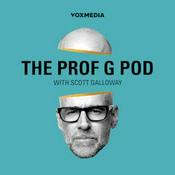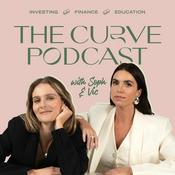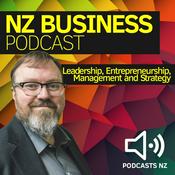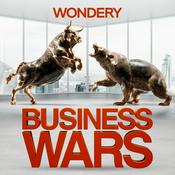5 episodes
- Charles Hudson, founder and managing partner of Precursor Ventures, is a legend in early-stage investing. Under his leadership, Precursor has raised four funds with over $175M under management and invested in 375+ companies including Clearco, Juniper Square, and The Athletic (acquired by NYT for $550M+).
In this episode:
Why the traditional era of seed investing is fundamentally changing and what it means for founders
How multi-stage firms are reshaping early-stage investing with permanent seed programs
The surprising truth about founder evaluation and why "spiky" beats well-rounded
Precursor's unique approach to developing investment talent through direct investing experience
Some takeaways:
The symbiotic relationship between seed and multi-stage firms is ending after 20-25 years. Multi-stage firms are building permanent seed practices, driven by the desire to access great founders earlier and supported by dedicated capital pools.
Previous startup success is less important than previous startup experience when evaluating zero-to-one founders. Being successful in big tech companies often doesn't translate to early-stage success because the skills that drive promotion (stakeholder management, managing up) aren't relevant.
For pre-seed investments under $1M, Precursor uses a 75/25 founder/idea weighting - but founders must be "in the neighborhood of a good idea" because there isn't enough runway to pivot to something better.
When evaluating founders, problem-solving ability and specific "spikes" matter more than well-roundedness. The hardest traits to coach are diagnosing/solving problems quickly, moving with urgency, and attracting talent when it's irrational to join.
Hot companies in the first year of a fund often provide false signals - in Precursor's experience, none have ended up being the companies that truly matter for fund returns, and some have gone to zero.
References from managers are often poor predictors of entrepreneurial success because you're judging someone's ability to do a job they've never done before. The key is evaluating their potential to handle 8-10 entirely new responsibilities.
Precursor has evolved to become a default seller of ~20% in Series B rounds when pricing delivers meaningful returns and the sale won't disrupt the founder - a strategy developed to balance DPI pressure with maintaining upside.
For AI investments, the focus should be on capabilities that exist today rather than betting on future improvements. Many promising ideas are 12-24 months too early and won't survive long enough for the necessary innovation to happen.
Life balance requires choosing three priorities from among being a partner, parent, running your business, maintaining friendships, and pursuing interests. Most people can only do three well, and understanding this helps make intentional choices.
Full episode guide:
(00:00) Introduction of Charles Hudson and Precursor Ventures(01:53) Why traditional seed investing's 20-25 year era is ending (06:46) Pipeline vs returns motivation for multi-stage firms (09:40) Early signaling risk and founder-investor fit (12:18) Finding alpha in non-obvious founders (15:04) LP perspectives on seed investing (19:49) Different types of LPs and their decision-making processes (21:49) Evaluating founders: Pattern recognition from 400+ investments (26:55) Why previous startup experience matters more than success (35:56) Charles's founder scoring system and framework (42:02) Using personality assessments and references (44:14) Building Precursor's 13-person team structure (47:42) Why Charles has a five-person productivity team (48:04) Unique investment team structure and autonomy (50:46) Being a generalist investor vs specialist (55:54) Reserves and selling strategy (01:11:11) AI investing thesis: Focus on current capabilities (01:19:05) Work-life balance and the three priorities framework (01:25:16) Final thoughts
This is a public episode. If you would like to discuss this with other subscribers or get access to bonus episodes, visit blog.davidkaye.co - Simon Pulman, Partner and Co-Chair of the Media & Entertainment Practice at Pryor Cashman, has deep experience and strong opinions about making the games and traditional entertainment industries work together. Our conversation explores the future of both industries, generational gaps in understanding gaming, and practical advice for IP deals between gaming and Hollywood.
Key takeaways:
• The entertainment industry's leadership is too disconnected from gaming culture, with many executives not understanding the scale and influence of the gaming industry
• The success of Five Nights at Freddy's ($80M opening weekend despite day-and-date streaming) demonstrates the power of engaged gaming communities
• IP holders from gaming should never grant perpetual rights to movie/TV studios and should focus on maintaining control of their IP
• Streaming-only movies struggle to become cultural phenomena compared to theatrical releases, as audiences don't perceive them as "real movies"
• The 2023 Hollywood strikes likely hurt writers and actors more than helped them, leading to reduced content production and allowing studios to reassess their business models
• Multi-tasking is becoming the norm for media consumption, suggesting a bright future for handheld gaming and content that can be consumed while doing other activities
• Asian-developed games, particularly from South Korea and China, represent a growing opportunity in the gaming market
• Deal-making between gaming and entertainment companies often fails due to process misalignment and not having all stakeholders (especially legal) involved early enough
Full episode guide:
(00:00) - Introduction and background (05:32) - What makes successful game adaptations work (14:16) - Why the Borderlands movie went so badly wrong (18:04) - Hollywood's age problem and disconnect from gaming (23:18) - The entertainment industry's "survive till 2025" mentality (27:19) - Netflix's gaming strategy (30:10) - The challenge with streaming-only movies (34:16) - Community-driven IP and Five Nights at Freddy's success (42:15) - Future trends in gaming and entertainment (47:48) - Practical advice for deal-making between gaming and entertainment companies
Where to find Simon:
LinkedIn: https://www.linkedin.com/in/simonpulman/
Website: https://www.pryorcashman.com/simon-pulman
This is a public episode. If you would like to discuss this with other subscribers or get access to bonus episodes, visit blog.davidkaye.co - Kevin is the founder and CEO of AfterHour, the stock market super app for active traders. On WallStreetBets, he was known as SirJack, the day trader who turned $35,000 into $8M. A former engineer at Stripe and YouTube, he is also a serial founder.
In this episode:
How Kevin used Reddit to seed his initial audience
The positives and negatives of building for consumers in 2024
How he tackles the search for product-market fit
Why he loves big hats
Full episode guide:
(00:39) Is 2024 a good time to build in consumer?
(02:48) The two viable paths for consumer startups
(06:00) What Kevin learned from his last two startups
(07:44) Finding product-market fit and why he focuses on DAUs above all
(09:49) How AfterHour works
(15:01) What Kevin learned at Stripe and YouTube
(19:37) How Kevin traded his way from $35,000 to $8M
(24:54) Community as a moat
(26:46) The death of friend-based social networks?
(28:55) Balancing startup life with fatherhood
(30:00) What’s the deal with the big hat?
Where to find Kevin:
LinkedIn: https://www.linkedin.com/in/imkevinxu/
Twitter: @imkevinxu
Website: https://afterhour.com
This is a public episode. If you would like to discuss this with other subscribers or get access to bonus episodes, visit blog.davidkaye.co - Siqi Chen is co-founder and CEO of Runway, and a master startup storyteller who has successfully raised tens of millions of dollars from some of the biggest names in venture capital. This is an honest conversation about how investors really think and what they actually respond to - and why it’s different from most of the advice out there.
In this episode:
* Why standard pitch templates are good for investors but bad for you
* The three-act structure Siqi uses to tell compelling startup stories
* The four crucial questions you need to answer for investors
* How to pick a good name
* The risks of investing in "prestige track" founders
Full episode guide:
* (00:24) Introduction of Siqi Chen and Runway
* (01:15) Why traditional pitch templates don't work
* (03:05) The five emotional stages of an effective pitch
* (05:15) Three-act structure for startup storytelling
* (10:01) Four key questions investors need answered
* (12:33) What’s in a name?
* (17:51) How to balance brand with performance marketing
* (24:02) Lessons from a decade of angel investing
* (27:25) How to evaluate founders
* (35:35) Closing remarks and contact information
Where to find Siqi:
* LinkedIn: https://www.linkedin.com/in/siqic/
* Twitter: @blader
* Website: https://runway.com
This is a public episode. If you would like to discuss this with other subscribers or get access to bonus episodes, visit blog.davidkaye.co How to sell games in the age of TikTok, ignoring trends and the perils of pedigree investing with Bertrand Vernizeau, Game Seer Venture Partners
02/9/2024 | 52 mins.Bertrand Vernizeau, co-founder and partner at Game Seer Venture Partners is an unusual games investor. He and his partner invest out of their own pool of capital, with no outside LPs. This structure affords some unique advantages, but that’s not the only thing they do differently.
In this episode:
* Why big gaming venture funds will struggle to achieve market-beating returns
* Lessons learned from missing a 100X opportunity to invest in PowerWash Simulator
* The TikTokification of gaming and what it means for game development and marketing
* Why their upcoming game Half Sword is blowing up in playtests and across social media
Some takeaways:
* Chasing billion dollar outcomes in games is incredibly challenging in the absence of a new platform driving massive audience growth. This presents a big challenge for mega funds with hundreds of millions to deploy. Funds writing smaller checks under flexible models that allow for faster payback via royalties with an equity kicker have an inherent advantage in the current market.
* If the product cannot sell itself, marketing is not going to help. Marketing alone cannot create interest - it can only amplify something that is already there.
* Traditional channels are mostly dead. From the start of development, you have to figure out how your game going to capture attention in the first five seconds of a TikTok clip, because that’s where a lot of your organic audience is going to come from.
* Attention can be engineered - attributes such as the anticipation of movement combined with the constant delivery of pleasurable stimuli are powerful hooks to create engagement.
* Team chemistry and history of working together trumps individual pedigree: a superstar creator is an unreliable guide of future hit making potential, even more so than in other industries such as film and TV. This is because a lot of what makes a game great is the product of many disparate things coming together, not the singular vision of a designer.
Full episode guide:
* 01:13) Bertrand’s background and entry into the gaming industry
* (03:00) The unique structure of Game Seer Venture Partners
* (06:04) Why Game Seer avoids trends like Web3, AI, and mobile gaming
* (08:14) The rise of venture funding in PC and console games
* (10:35) The importance of team chemistry over individual pedigree
* (13:02) The challenges and pitfalls of over-funding in the gaming industry
* (15:44) Indie games outperforming big studios: recent success stories
* (18:30) GameSeer’s selective investment strategy: evaluating 1,500 teams annually
* (21:50) How GameSeer structures deals with a focus on royalties
* (25:16) The TikTokification of gaming and the fight for user attention
* (27:43) The shift in the market: AAA struggles and indie successes
* (30:58) Lessons from missing out on PowerWash Simulator
* (34:07) The creation and success of Game Seer’s publishing label
* (36:23) Why traditional VC models don’t always fit the gaming industry
* (38:45) The balance between project financing and publishing in Game Seer’s model
* (41:30) Game Seer’s approach to evaluating new game concepts and teams
* (47:02) The impact of post-COVID realism on gaming investments
* (49:30) Addressing the challenges of scaling indie game hits
* (52:14) The future of game development: Balancing creativity and commercial success
* (57:45) Final thoughts
Where to find Bertrand:
* LinkedIn: https://www.linkedin.com/in/bertrand-vernizeau-2795144a
* Website: https://www.game-seer.com/
This is a public episode. If you would like to discuss this with other subscribers or get access to bonus episodes, visit blog.davidkaye.co
More Business podcasts
Trending Business podcasts
About David Kaye's Interviews
Interviews with leaders from startups and the attention economy from a founder turned investor. blog.davidkaye.co
Podcast websiteListen to David Kaye's Interviews, The Diary Of A CEO with Steven Bartlett and many other podcasts from around the world with the radio.net app

Get the free radio.net app
- Stations and podcasts to bookmark
- Stream via Wi-Fi or Bluetooth
- Supports Carplay & Android Auto
- Many other app features
Get the free radio.net app
- Stations and podcasts to bookmark
- Stream via Wi-Fi or Bluetooth
- Supports Carplay & Android Auto
- Many other app features


David Kaye's Interviews
Scan code,
download the app,
start listening.
download the app,
start listening.






































